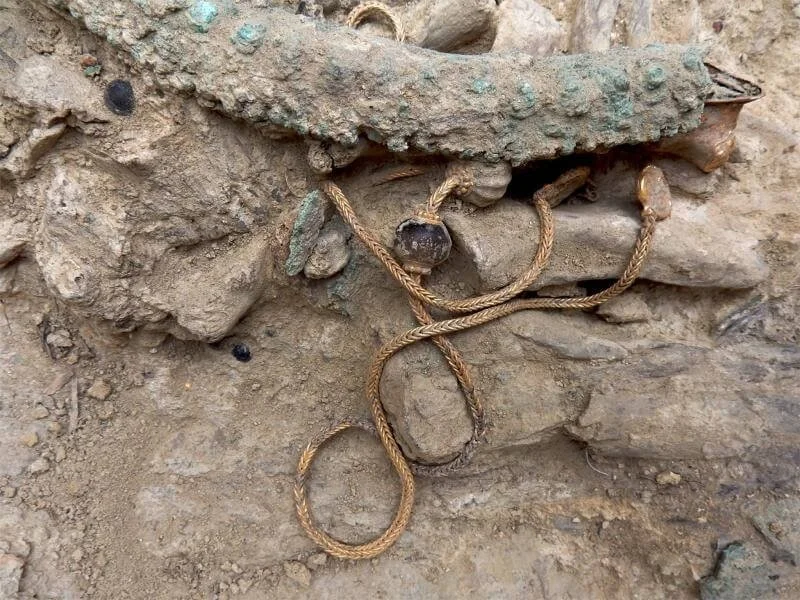BY THE ARCHAEOLOGIST EDITOR GROUP
The Prehistoric Saga of Hebrew Enslavement: Myths, Facts, and Interpretations
The story of the Hebrews' enslavement in ancient Egypt is one of the best-known episodes from the Bible. For many, it serves as a testament to perseverance, faith, and the ultimate triumph of the oppressed over their oppressors. But beyond religious texts, what do we truly know about the initial subjugation of the Hebrews in prehistoric times? This article delves into the origins of the Hebrew enslavement, examining both religious accounts and what historical evidence can offer.
Biblical Account: From Famine to Enslavement
According to the Book of Genesis in the Old Testament, the initial connection between the Hebrews and Egypt began with Joseph, one of the twelve sons of Jacob (later named Israel). Sold into slavery by his jealous brothers, Joseph eventually rose to prominence in Egypt due to his ability to interpret dreams. He foresaw a seven-year famine and advised Pharaoh on measures to prepare for it. Grateful, Pharaoh elevated Joseph to a high-ranking position, and during the famine, Joseph's family migrated to Egypt for sustenance.
For a time, the Hebrews prospered and multiplied in Egypt. However, as the Book of Exodus recounts, a new Pharaoh came to power "who did not know Joseph." Fearing the growing Hebrew population, he enslaved them, marking the beginning of several centuries of bondage.
Historical Evidence and Debates
While the biblical story is rich in detail, its historical accuracy has been the subject of debate among archaeologists and historians. There are several points of contention:
1. Chronology: Determining the exact timeline of Hebrew enslavement is challenging. Different scholars place the Exodus (the liberation of the Hebrews from Egypt) at different periods, ranging from the Middle Kingdom to the New Kingdom.
2. Archaeological Records: Direct archaeological evidence linking the Hebrews to ancient Egypt during the said period of enslavement is scant. There are no Egyptian records that clearly document the enslavement of a people identifiable as the Hebrews.
3. City of Ramses: The Bible mentions that the enslaved Hebrews built the store cities of Pithom and Ramses. Some associate the mention of Ramses with Pharaoh Ramesses II, suggesting a New Kingdom timeline for the enslavement. However, no archaeological evidence directly supports this claim.
4. Semites in Egypt: There's evidence of Semitic peoples in ancient Egypt working in various capacities, including labor. The Brooklyn Papyrus, for instance, lists several Semitic slaves in Egypt. However, whether these were Hebrews or another Semitic group is not specified.
The Evolution of the Narrative
The story of the Hebrew enslavement and the Exodus has evolved over time, with religious, philosophical, and cultural interpretations layering upon the original tale. For believers, the story serves as a testament to divine intervention and the idea that faith and righteousness will ultimately lead to deliverance. Philosophically, it touches upon themes of freedom, resistance against oppression, and the quest for a promised land or a better life.
The enslavement of the Hebrews in prehistoric times, as described in biblical texts, remains one of the most potent narratives in human history. While its historical accuracy might be debated, its cultural and religious significance is undeniable. The story transcends its religious roots, offering timeless lessons on hope, faith, and liberation.







